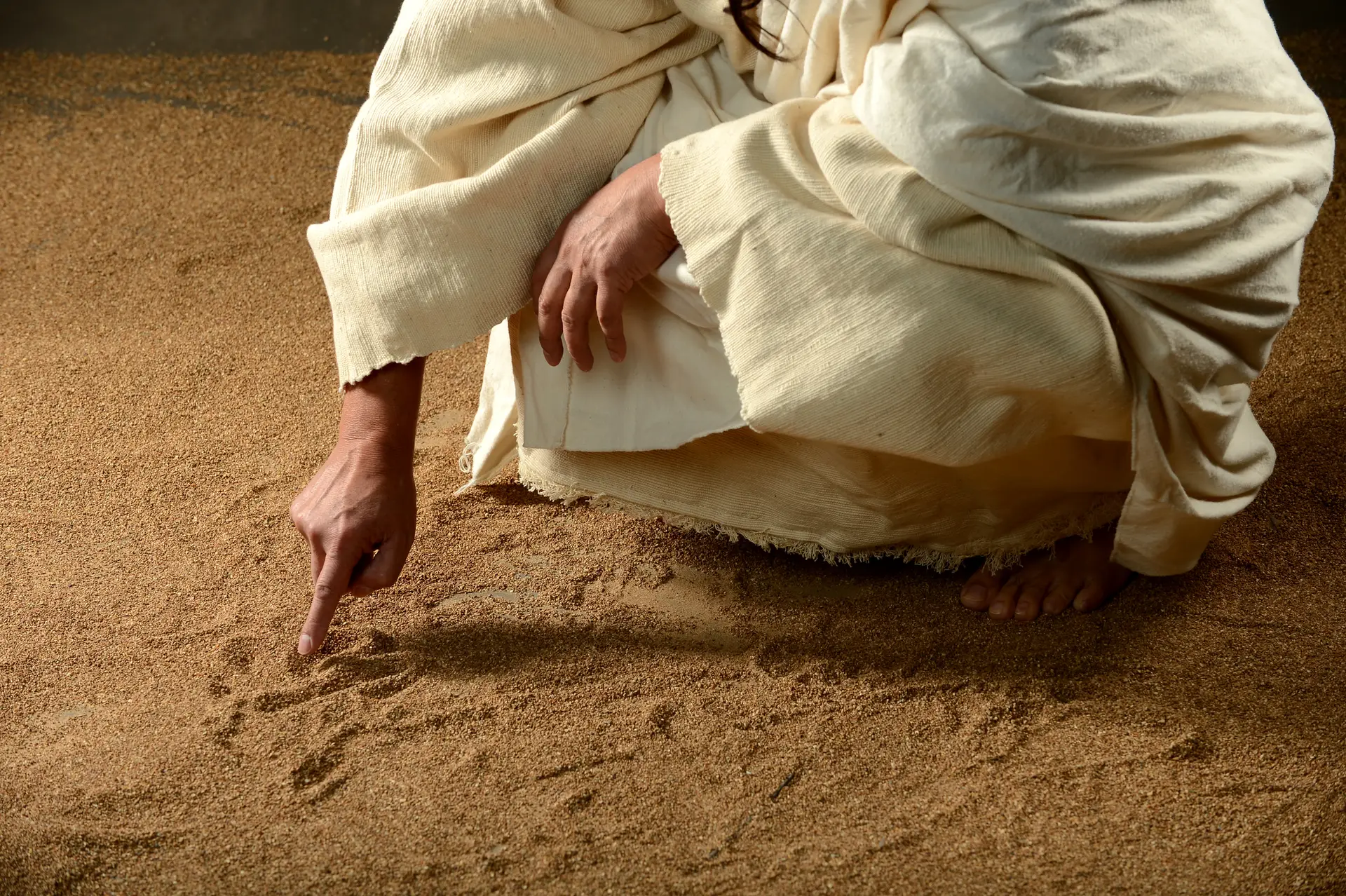…while Jesus went to the Mount of Olives. Early in the morning he came again to the temple. All the people came to him, and he sat down and began to teach them. The scribes and the Pharisees brought a woman who had been caught in adultery; and making her stand before all of them, they said to him, “Teacher, this woman was caught in the very act of committing adultery. Now in the law Moses commanded us to stone such women. Now what do you say?” They said this to test him, so that they might have some charge to bring against him. Jesus bent down and wrote with his finger on the ground. When they kept on questioning him, he straightened up and said to them, “Let anyone among you who is without sin be the first to throw a stone at her.” And once again he bent down and wrote on the ground. When they heard it, they went away, one by one, beginning with the elders; and Jesus was left alone with the woman standing before him. Jesus straightened up and said to her, “Woman, where are they? Has no one condemned you?” She said, “No one, sir.” And Jesus said, “Neither do I condemn you. Go your way, and from now on do not sin again.
John 8:1-11 (NRSV)
The more I practice and teach family systems theory, the more I realize that self-regulation is the key to self-differentiation. If self-differentiation is expressing yourself in healthy ways, while remaining emotionally connected to the most anxious, then self-regulation is the key.
One reason is the primitive part of your brain is conditioned to react automatically and that’s usually not good. You either lash back reactively and get into a conflict of wills or adapt and give in without expressing yourself.
Self-regulation enables you to keep those automatic responses in check and to think clearly about how you REALLY want to respond. It’s what Stephen Covey calls integrity in the moment of choice. It’s the opportunity to choose a response that is in line with your values. That’s self-differentiation. That’s integrity.
In this passage Jesus uses a physical means to create a pause in an anxious situation. He stoops down and writes in the dirt. Presumably Jesus, being divine, doesn’t need a gimmick to self-regulate.
I believe there are two things happening. First, Jesus is modeling self-regulation, creating a pause in an anxious situation, so that we can learn to do the same. Second, he’s forcing the accusers to pause. They are watching him and wondering what’s going on. It distracts their attention from their own anxiety and allows the overall anxiety in the situation to drop.
It’s interesting that we don’t know exactly what he wrote. It’s not important. It’s process, not content. The process is creating a pause to allow the anxiety level to come down.
Then Jesus chooses a paradoxical response which keeps him out of the triangle between the woman and the accusers. He says, “Go ahead and stone her if you have never sinned.” By doing this Jesus avoids a conflict of wills and forces the accusers to come to terms with their own humanity and sinfulness, as well as to take responsibility for self.
They walk away.
You probably won’t have the opportunity to stoop down and write in the dirt in an anxious situation. But you can still self-regulate. You can still create a pause to enable you to think clearly. You may feel surrounding togetherness pressure to respond quickly. Self-regulation can help mitigate that. It will help you remain a non-anxious presence.
I’ve rarely been in a situation where pausing to allow a thoughtful response has been a problem. One way to do this is to say, “I need a minute to think about this,” and close your eyes. By requesting time to think, you’re self-differentiating. By closing your eyes you are helping the other person to visualize that you are being thoughtful. To me, this is the equivalent of writing in the dirt.
Whatever works for you, it’s essential to figure out ways to self-regulate in anxious situations if you want to lead through self-differentiation. It’s what non-anxious leaders do.


